Understanding Prescription Drugs
Learn about prescription drugs and substance abuse
The majority of people take medications as prescribed by their physicians. However, it has been estimated that as much as 20%of adults in the U.S. have used prescription drugs for recreational purposes. This type of drug abuse is a serious problem increasing in frequency each year. Many prescription drugs that are abused provide a pleasurable experience or a sudden “rush” which alters mood. Everyone enjoys experiencing positive moods, especially when they are somewhat exaggerated, so when individuals seeking out such experiences come into contact with a prescription medication that produces such effects, it is not unusual for them to become addicted. In addition, the ease of access contributes to the increase in this type of addiction. Additionally, the frequency with which new drugs are becoming available on the market has grown with better research and technology, and physicians are prescribing more medications for medical problems than ever before. Commonly abused drugs that have a high potential for leading to addiction include narcotic painkillers, sedatives and tranquilizers, and stimulants.
Those who abuse prescription medications often obtain them from physicians who are willing to continue prescribing despite only self-report justifying the need, or they may steal prescriptions from friends or family. While this problem can affect all age groups, it most frequently occurs in young adults. Despite the negative consequences, this type of drug abuse is often long lasting, especially if the individual can easily obtain their drug of choice.
Often people may not realize they have a problem since the medication they are taking was legally prescribed. While they may never have considered taking an illegal drug, using prescription medications in a manner not intended by the prescribing physician doesn’t seem comparable, and thus they don’t attribute the behavior to abuse. Depending on the substance, tolerance may build slowly, so that by the time they realize they have a problem, their abuse has become an addiction.
Statistics
Prescription drug addiction statistics
In the U.S. the lifetime prevalence rate for prescription drug addiction in adults has been estimated to be over 2.7%. This equates to more than 15 million people being addicted to a prescription drug. In 17-25 year olds the prevalence rate has been estimated at 6%, while for those age 12-17 almost 3.5% reported using prescription drugs for recreational purposes. In this younger demographic over 8% reported taking Vicodin, while over 5% reported using Oxycodone. As most people, especially teens, don’t seek treatment for this problem, these statistics are considered underestimates.
Co-Occurring Disorders
Prescription drug addiction and co-occurring disorders
Disorders found to co-occur with this prescription drug abuse include:
- Illicit Drug Abuse
- Poly Substance Abuse (use of drugs from at least three different classes)
- Depression
- Anxiety disorders
- Somatization Disorders
- Attention Deficit Hyperactivity Disorder (child and adult onset)
- Conduct Disorder or a history of Conduct Disorders in childhood and adolescence
Causes and Risk Factors
Causes and risk factors of prescription drug addiction
It is difficult to determine exact causes for prescription drug use disorders since there are numerous drugs that are abused. Some general causes which have been linked to the development of this disorder include:
Genetic – While not necessarily specific to the same prescription drug, it has been found that those with a first degree relative that has any substance abuse disorder are at greater risk for developing a prescription drug use disorder in the same category. It has been hypothesized this is related to temperament, which is believed to be inborn.
Effects in the Brain – Most substances lead to abuse disorders due to the effects on the pleasure and reward systems of the brain. Many substances produce similar effects to naturally produced substances in our brains so that, with repeated use, the brain responds to the drug in a similar manner as it does to these natural substances.
Other Causes – There are other factors that may lead to the development of prescription drug misuse. These include:
- Attempts to regulate negative mood states
- To overcome anxiety and decrease pain from muscle tension
- Weight loss – Initially taken for weight loss, however, pleasurable effects lead to continued use even after weight loss goals have been achieved
- Experimentation with friends using drugs found around the house
- Attempts to avoid withdrawal symptoms from a different drug
- Attempts to increase the effects of a related drug
- To increase social confidence for those who are shy or experience social anxiety/social phobia
- Attempts to be accepted by peers
- To improve productivity or performance in important activities
Signs and Symptoms
Signs and symptoms of prescription drug addiction
The symptoms of prescription drug abuse differ based on what drug is involved. However, there are certain symptoms prescription drug abuse disorders frequently have in common, which include:
- Psychological/Mood Factors
- Notable changes in mood or mood swings
- Poor judgment and decision making abilities
- Altered mental status, appearing “high”, disoriented, or confused regarding person, place, and time
- Becoming preoccupied or obsessed with obtaining, taking, or recovering from the drug
- Interpersonal problems
- Lack of social support network
- Behavioral Symptoms:
- Stealing prescriptions from friends and family
- Dependence on others to help the individual complete responsibilities they can no longer fulfill
- Obtaining different prescriptions that can be sold to obtain money to buy the prescription of choice
- Repeated reports that prescriptions were lost or stolen to obtain additional medication
- Obtaining prescriptions from several different doctors
- Crushing pills and snorting the powder or mixing it with water to inject in order to achieve a quicker and more potent effect
- Borrowing/stealing prescription medications from others
- Inconsistent or contradictory responses to questions asked about prescription usage
- Physical symptoms:
- Increased or decreased need for sleep
- Appearing unusually energetic, or overly fatigued
- Increased or decreased appetite
- Various physical symptoms such as nausea, headache, or dizziness
- Drug is taken to prevent withdrawal symptoms
- Tolerance
Effects
Effects of prescription drug addiction
The effects of prescription drug misuse will also depend on the type of medication used. Some common categories of effects include:
- Masking or numbing of positive and negative emotions, so that the person appears “flat”
- Occupational problems, lowered productivity, decreased motivation, unemployment
- Decreased academic performance
- Financial and legal problems
- Psychological problems
- High risk behaviors resulting from compromised judgment
- Moving from abusing prescription drugs to illegal drugs
- Engaging in illegal activities
- Increased motor vehicle accidents
Withdrawal Symptoms
Withdrawal symptoms of prescription drug addiction
Physical withdrawal symptoms for different substances can differ significantly. Psychological symptoms tend to overlap more than the physical symptoms and can include:
- Tremors
- Sweating
- Craving
- Headaches
- Nausea and vomiting
- Diarrhea
- Anxiety
- Depression
- Fever
- Insomnia
- Hallucination or delusions ( depending on medication used)








